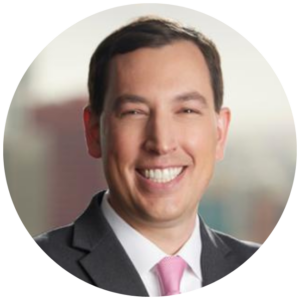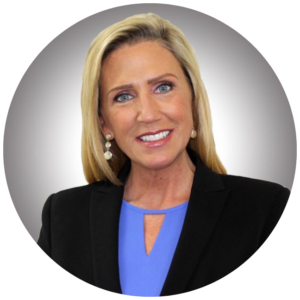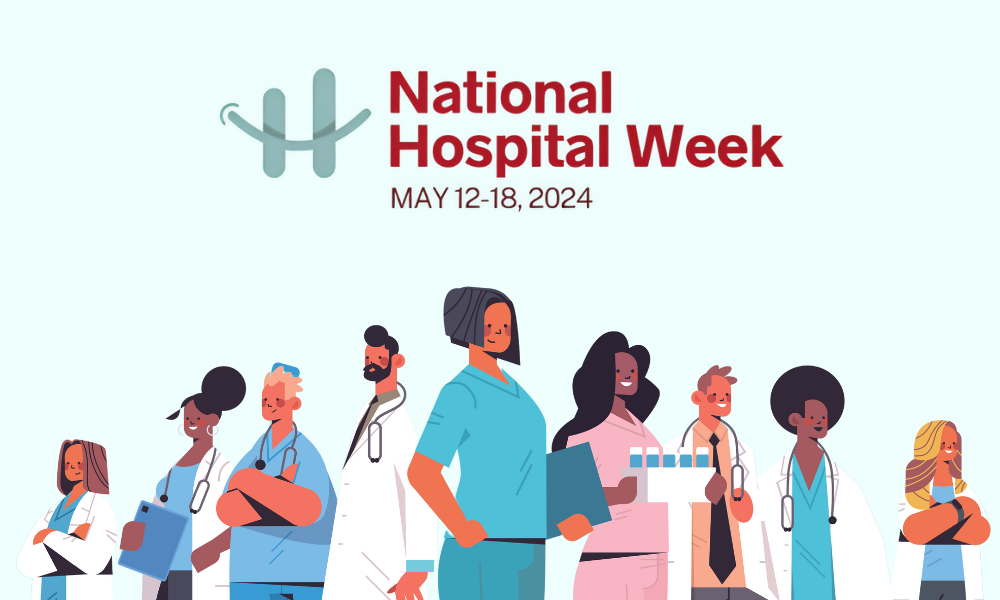Physicians at a Crossroads: Docs Seek New Non-Traditional Career Paths Amid Healthcare Strain
Dec. 11, 2023
Physicians are diversifying their career paths and seeking non-traditional roles to address their burnout, a report from Forbes claims. How bad has the burnout gotten?
- A survey from InCrowd revealed that 79% of primary care physicians report burnout, compared to 57% of specialists.
- A study in the Journal of General Internal Medicine highlighted the paradox of primary care physicians needing nearly “26.7 hours per day to provide recommended care” to patients.
![]() New “side gigs” help give physicians a break from the demands of medicine. Dr. Nisha Mehta has helped create a collection of resources to assist in this quest for opportunities outside of traditional medical practice. Dr. Mehta founded Physician Side Gigs (PSG), an online physician community with different links and access to side gigs doctors can pursue, like writing, consulting, real estate, and more. The website has become a popular platform for exploring opportunities outside of healthcare. PSG has grown from 10,000 members in 2018 to 180,000 today.
New “side gigs” help give physicians a break from the demands of medicine. Dr. Nisha Mehta has helped create a collection of resources to assist in this quest for opportunities outside of traditional medical practice. Dr. Mehta founded Physician Side Gigs (PSG), an online physician community with different links and access to side gigs doctors can pursue, like writing, consulting, real estate, and more. The website has become a popular platform for exploring opportunities outside of healthcare. PSG has grown from 10,000 members in 2018 to 180,000 today.
Forbes also notes a new trend in the business world of physicians moving to non-traditional roles and pursuing opportunities outside traditional clinical care. An example would be the “Chief Medical Officer” position, which was once reserved for hospitals but is now used in corporations, consulting roles, private equity, and venture capital firms. The shift we’ve seen with these trends creates new opportunities for physicians but, unfortunately, also signals a growing departure from traditional medicine, putting more stress on a healthcare industry already plagued by primary care and specialty physician shortages.

Take a closer look at the intricacies of today’s healthcare landscape in the article from Forbes and see how the growing physician crisis is reshaping the future of medicine.
La Vida Locum
Wilderness Medical: The Challenges of Securing Top Talent in Remote Regions
Nov. 29, 2023
Recruiting healthcare providers for rural and remote facilities presents challenges such as geographical isolation, severe weather, and the need for cultural competency because of the diverse communities.
Essential Skills Providers Need
To work in remote facilities, providers must have expertise in emergency medicine, primary care, and urgent care. Staffing agencies will use a screening process to assess a candidate’s CV, experiences, and skills pertinent to rural healthcare.
Some of the critical skills these healthcare providers need to work in rural and remote areas include:
- Adaptability: Locums need to be adaptable. Providers must expect the unexpected and be problem-solvers who can provide care even with limited resources.
- Cultural competency: Rural areas have diverse communities, and providers need to respect those local cultures if they want to practice there.
- Effective communication: Providers need strong communication skills to speak with administrators, supervisors, coworkers, and patients.
- Familiarity with technology: Finding adaptable providers is so important because they will need to learn different EMR systems and telehealth technologies.
A staffing agency can help evaluate each provider through rigorous interviews and background checks to ensure that each candidate is fit for rural assignments.
Before placing providers, a staffing agency works with facilities to understand their needs, considering factors like pay, assignment length, and facility type to ensure an ideal fit. Partnering with staffing agencies streamlines the process and benefits healthcare facilities and providers. See the complete Wilderness Medical Staffing article to learn about rural locums providers’ staffing challenges.
Reenvisioning Healthcare: The Strategic Integration of Locum Tenens into Modern Medicine
Dec. 4, 2023

As staffing needs change, healthcare leaders strategize to address ongoing shortages while maintaining patient care and driving efficiency and revenue.

Strategic use cases for locums are expanding, including improving patient access in rural areas, supporting health equity strategies, and recognizing locums as revenue generators for facilities instead of being cost centers. The widespread adoption of telehealth services has also propelled the use of telehealth locum providers to prevent revenue loss because of staffing shortages.
Healthcare organizations are redefining their workforce strategies by embracing locum tenens clinicians as integral components. For an in-depth exploration into ways locums drive value and access, read the article in Becker’s Hospital Review or listen to the featured episode on Becker’s Healthcare Podcast with Jackson + Coker.
Locum Leaders
LocumJobsOnline Awards Spring Scholarship to MD Student from the University of South Carolina
Dec. 14, 2023
Jonathan Le, a University of South Carolina student pursuing a Doctor of Medicine (MD) degree, has been awarded the LocumJobsOnline 2024 Spring Scholarship.
According to a press release from LocumJobsOnline, Le’s passion for patient care, proficiency in data analytics, and empathetic approach to understanding patients’ life stories set him apart from other applicants.
The scholarship comes from LocumJobsOnline’s commitment to supporting the next generation of providers and connecting them with healthcare opportunities. The press release said Le’s vision aligns with LocumJobsOnline’s mission, emphasizing the importance of compassionate connections in healthcare and the fusion of data science, technology, and medicine. He says he wants to use tech to enhance the human aspect of care, allowing physicians to focus on connecting with patients and their unique stories.
The achievement celebrates Le’s dedication and his potential as a new doctor to contribute to the future of healthcare.
For more information about the LocumJobsOnline scholarship program and services, visit their website. Check out the press release from LocumJobsOnline to learn more about Le’s achievements.
Liz Hale of MPLT Healthcare Honored in 2023 SIA Global Power 150 Women in Staffing List
Dec. 4, 2023

Jay Mays, Chairman of the Board of Directors at MPLT Healthcare, congratulated Hale on her recognition, saying Hale’s visionary leadership has driven the organization’s success. He praised her dedication and commitment to excellence.
Ursula Williams, SIA’s Chief Operating Officer, also noted that the impact of this year’s Global Power 150 Women in Staffing is remarkable, given the challenges posed by the post-pandemic healthcare landscape, economic uncertainties, and geopolitical issues.
The women on SIA’s annual list have demonstrated innovation and growth in the workforce solutions ecosystem. Check out the complete list of honorees in the SIA Global Power 150 Women in Staffing here.
SIA Locum Tenens Market Assessment Unveils Largest Locums Companies, Market Estimates, Growth Projections & More
Dec. 15, 2023
Staffing Industry Analysts (SIA) recently revealed its latest Locum Tenens Market Assessment, giving an overview of the activity in the locum tenens market this past year.
This summer, SIA reported that the locum tenens staffing market had propelled itself to a $6.1 billion market share in 2022. In November, SIA reported 12% growth for the locums segment in 2023.
Here’s what you’ll find in the report:
- Comprehensive analysis of the locum tenens sector, recognized by SIA as one of the few staffing segments to experience growth in the US during 2023.
- A detailed look at the leading locum tenens staffing firms in 2022, encompassing a significant portion of the market. SIA will also include market size estimates spanning 2019-2024 and growth forecasts for 2023 and 2024.
- In-depth exploration of the integration of AI in locum tenens, examining trends among physicians and advanced practice professionals, the adoption of telehealth and retail clinics, licensure considerations, clinician burnout, and more.
Qualified members are the only ones who can access the full report. Check out the link to view the full report.
Making the Rounds
Navigating the Physician Shortage: Proactive Retention Tactics for Healthcare’s Future
Dec. 14, 2023
The shortage of physicians in the US is an ongoing issue, with projections suggesting a potential deficit of up to 124,000 physicians by 2034, according to the Association of American Medical Colleges. The physician shortage arises from factors such as:
- An aging medical workforce
- Insufficient medical graduates and
- Physicians leaving the profession.
According to LocumTenens.com, 77% of medical groups lack a formal physician retention strategy, which shows that healthcare organizations have both a significant challenge and an opportunity to address the challenge. Recently, LT.com collaborated with the Medical Group Management Association to investigate methods of physician retention.
Their report, “The Innovation Imperative for Physician Retention,” looks at the problem and offers insights based on data from nationwide healthcare leaders. Analyzing the report’s findings, we can derive some valuable tactics for enhancing strategies to retain physicians.
Create A Comprehensive Retention Strategy
Formalizing physician retention strategies is crucial. Establishing a Physician Retention Committee of 6-10 physicians and a staff member responsible for recruitment and retention can foster advocacy and lead to innovative programs.
Gathering Relevant Data
Surprisingly, around half of medical practices do not utilize employee satisfaction surveys to measure engagement, according to LT.com. Developing surveys and data-driven programs can address retention challenges effectively.
Engage Your Physicians
Initiating dialogue with clinicians is also an essential component of retention. While compensation is a significant factor in physician job satisfaction, it’s not the sole determinant. Engaging physicians in discussions empowers them to influence the patient experience and the entire organization, hopefully enhancing retention rates.
Addressing physician retention will be important for the healthcare industry’s long-term sustainability, both financially and regarding access to care. The full report, “The Innovation Imperative for Physician Retention,” provides additional strategies and insights for boosting physician retention in healthcare organizations. View the article here, or download the full report for LT.com’s findings.
AMA Reveals 2023’s Insights From Survey on Physician Burnout
Dec. 18, 2023
In 2023, American physicians face profound challenges, one of the most significant being physician burnout. A survey by the American Medical Association (AMA) gathered new insights into this issue and the five things healthcare organizations have learned about burnout in 2023. There were more than 13,000 responses to the survey from physicians and non-physician providers in 30 states across 70 different health systems. The survey was AMA’s Organizational Biopsy®. It revealed key performance indicators like job satisfaction, stress, burnout, a provider’s intent to leave their organizations, and whether or not they felt valued.
The data from the survey serves as a national summary of organizational well-being and a benchmark for healthcare organizations. Reducing physician burnout will be something that facilities must address in the coming years, and the AMA looks to aid in these efforts, prioritizing well-being and workflow changes for physicians to focus on patient care.
Key findings from the survey in 2023 include:
- Burnout Still Greatest Problem: Half of physicians report experiencing burnout, indicating an ongoing problem despite a decrease from 2021.
- At-Risk Specialties: Six physician specialties face a high risk of burnout due to increased stress, long hours, and emotional exhaustion, prompting discussions on improving well-being.
- Gender’s Role in Medicine: Gender plays a role in burnout risk, with female physicians facing unique challenges that raise concerns about their well-being.
- Concerns Vary by Career Stage: Physician burnout, job satisfaction, and challenges vary by career stage, emphasizing the need for tailored efforts to promote satisfaction, reduce burnout, and improve retention.
- Docs Leaving Practice: 40% of doctors plan to leave their current practice, highlighting the importance of identifying and addressing intent to leave among physicians.
Access the article from AMA to look deeper into these insights and explore strategies they offer to address physician burnout.
Second Opinion
Mayo Clinic’s Strategy to Automate 30% of Healthcare Tasks
Dec. 17, 2023

The goal is to reduce administrative burdens and manual tasks, freeing up healthcare professionals for more human-related tasks. According to Poncelet, approximately 30 percent of healthcare tasks have automation potential. Automating specific tasks aims to improve outcomes, safety, and the patient experience by shifting the focus away from non-human-related tasks.

This transformation also implies a significant boost in virtual healthcare visits to efficiently handle the increased patient load. Furthermore, automation could replace human triage for most patient inquiries, except in emergencies. While a documentation-free and touch-free healthcare future may seem appealing, it could bring unique stressors and challenges. Discover this ambitious plan’s nuances, potential pitfalls, and promises in the KevinMD article.
Minorities Face Increased Discrimination in Healthcare Settings, Report Reveals
Dec. 6, 2023
Recent findings reveal a stark reality of discrimination in healthcare that significantly impacts patient experience and outcomes. The data, sourced from a KFF report, indicates that Black, Hispanic, American Indian/Alaska Native (AI/AN), and Asian individuals are more likely to encounter unfair treatment in healthcare settings compared to their White counterparts. These encounters often manifest as assumptions made by providers, blaming patients for health conditions, ignoring requests, or refusing necessary pain medication, the report says.
Black women are disproportionately affected, having frequently reported experiences of racism and discrimination from healthcare providers, according to KFF. The types of unfair treatment, they said, included “assumptions without inquiry,” blaming patients for their health conditions, neglecting their direct requests or questions, and refusing to prescribe needed pain medication.
The impact of discrimination extends beyond the healthcare setting. Many patients from racial and ethnic minority groups anticipate discriminatory encounters, often modifying their physical appearance to receive fairer treatment. The repercussions of these experiences could be profound, affecting healthcare access and overall health. Racial and ethnic minorities, mainly AI/AN, and Black individuals, report worse health outcomes and less likelihood of seeking care or changing providers.
Racism experienced in everyday life also detrimentally affects health outcomes. A significant number of AI/AN, Black, and Hispanic adults report experiencing racism or discrimination frequently, leading to adverse effects like stress, loneliness, and anxiety or depression.
KFF’s findings show the necessity for solutions within the healthcare sector. For more on the topic, see the full article xTelligent Healthcare Media.









